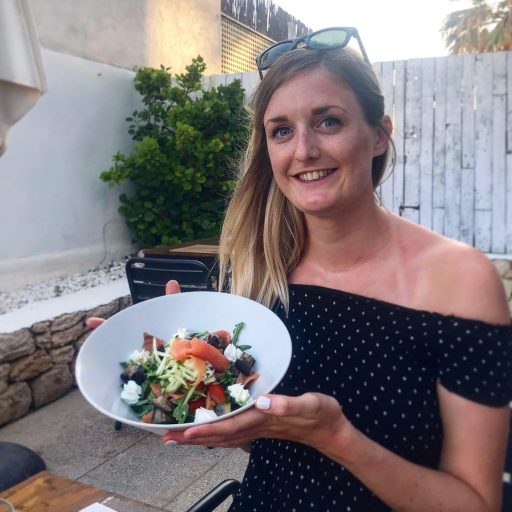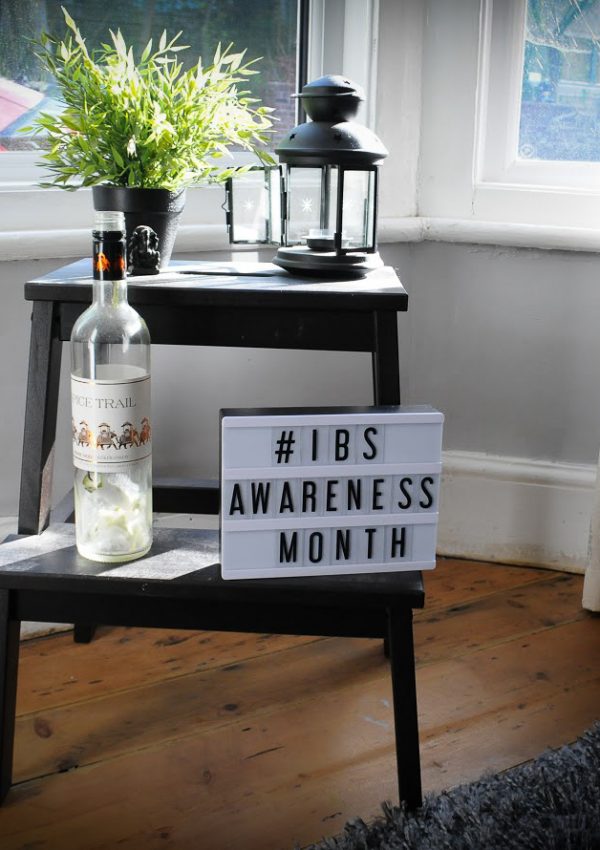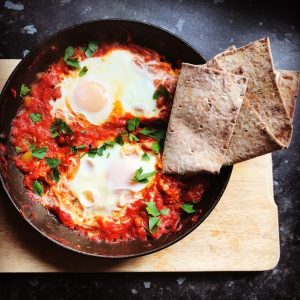During my teen years, particularly my years at college I went down with a nasty case of the Noro Virus, which resulted in me vomiting 19 times (I counted) in 12 hours. This triggered a phobia of being sick, and I think this is where the IBS issues really began. I would struggle to go out for meals, I would have mild panic attacks whenever I felt the slightest bit sick, I was even known to actually be sick (sorry TGI’s Southampton) when the panic became overwhelming. I also had random bouts of being sick after meals, for example if I’d had a rich dinner (cheese souffle, followed by salmon in a white sauce and cheese and biscuits for dessert – pescetarian choices were limited) I went home and was really ill. Looking back with my knowledge of FODMAPs, this was probably due to overdosing on lactose! This patch continued through college and university, and even in employment. I did go to the doctor for my phobia of sickness and stomach aches, and I was told that it was constipation and I should eat more fruit. The rude, embarrassing, patronising and abrupt response to my first visit to the GP with stomach problems (which really should have highlighted the beginnings of IBS-C) really put me in my place and put me off returning to the doctors with any stomach problems. It also made me think that all my symptoms were just normal.
As I travelled more, my symptoms worsened over time, with horrendous bloating. It got to the point I felt I couldn’t sit comfortably at my desk as my stomach was rubbing/pushing against it. I carried on for a little while before going to the doctor. I’d googled my symptoms (as you do nowadays and presume you have days to live) I plucked up the courage to see my local GP. After explaining my problems, the doctor immediately suggested I had IBS and prescribed some Mebeverine. I was like, after all these years and stomach issues, here it was problem solved with a tablet. But of course, the tablet did nothing and I had to keep returning! A few different prescriptions later, blood tests (for coeliac disease) and a printout of the low FODMAP diet, I then had a horrendous flare up, felt sick for about 6 days and was in extreme agony. I wasn’t sleeping and the cramps were unbearable. I returned to the doctor who suddenly realised the severity and I was finally referred to a gastroenterologist at the hospital. I then began strictly following the low FODMAP diet and began to feel so much better. I had the odd takeaway here and there but I noticed a huge improvement in my symptoms. I’m self-taught on the low FODMAP diet so always learning, and by the time I visited the gastroenterologist she was confident I was suffering with IBS, so I didn’t need to have a colonoscopy unless symptoms progressed. I completed yet another blood test and a stool sample to check for IBD, but results came back fine. It was at this point I was meant to see a dietician, but I was never referred. So I carried on with the low FODMAP diet and eventually started the blog to share my experience with others… and here I am!
Since starting Low FODMAP Inspiration, I’ve continued to follow a low FODMAP diet, however as I still hadn’t ever seen a dietican, I’ve never completed the reintroduction phase properly. Back in October I was hospitalised with gastroenteritis. I described the pain as having 8 chest-bursters from Alien trying to break out across my abdomen, and when the pain spread into my chest, I was admitted. Due to the blood tests and samples it became clear that fortunately it was just a bad bug, however on recommendation of doctors I’d taken codeine for the stomach cramps (little did I know at the time that this was actually constipating me and causing my IBS to go CRAZY!) The pain was unbearable so I ended up on morphine. Turns out I cannot tolerate morphine and was subsequently very very sick! Without all these horrid painkillers I don’t think I’d have needed a hospital stay, but you live and learn! Next time I’ll just stick to my trusty Buscopan! I never go anywhere without it now. It definitely helps with my day-to-day flare ups. During my stay in hospital, my Body Mass Index (BMI) was highlighted as a concern (it’s quite low as I’ve always been built like a lamp-post) and I was visited by the dietician. I was then asked if I’d like to see a FODMAP specialist dietician for my IBS and was finally referred.
1. Asafoetida! I’d never heard of this before my appointment, however it’s a spice that can be used to give the flavour of onion. I’ve since trialled it in a number of meals, and I recommend trying it in my Breakfast eggs (Shakshuka) to see if you like it!2. Reintroduction. I was never really sure how you carry out the reintroduction phase, however I’ve since been given some booklets with step-by-step flow charts on how to complete it. As I’ve been following the low FODMAP diet for nearly two years now, the dietician suggested that I have a really strict month (cutting out even the foods I know I can tolerate in small amounts such as broccoli, sweet potato, peas, halloumi and avocado – the hardest of them all!) and begin reintroducing foods one at a time, so that I can find out the exact amount (to the gram!) that I can tolerate. As it’s my birthday in a couple of weeks, I’ve decided to wait until this is out the way before having my strict month, as I’ll no doubt have a few treats or drinks at some point!! I will then be blogging my reintroduction phase to hopefully help others with the trickiest aspect (in my opinion) of following the low FODMAP diet.3. Some foods contain more than one FODMAP! It might seem obvious to some, but I was really surprised by this. I’ve always struggled with eating apples, they have an instantaneous reaction with me, and it turns out they are high in both Sorbitol and Fructose. Fascinating. This might therefore affect your tolerance levels on certain days, or might be the reason for random flare ups!4. I learnt that I am extremely sensitive to most of the FODMAPs through our discussions which wasn’t great to hear, but I like to try and remain positive… So it will mean I will have lots more recipes and ideas for my blog to share with you all!5. While it doesn’t seem like I’ve learnt a lot from the dietician, as I’ve been following the low FODMAP diet myself for so long, I think I’ve just picked up a lot already (such as the use of spring onion tips, garlic oil, lactose free substitutes) and having read the labels of pretty much all of the food items in all supermarkets, I think I could take an exam on foods that contain onion and garlic… Shame it’s not really a recognised skill!
Thank you for reading this incredibly long post (it started out as a quick blurb about me, but it turns out there’s much more to my IBS than I ever realised!) I hope you find some of it relatable, or maybe even useful, but most importantly that you feel more comfortable talking about IBS, especially as it affects so many people at some point in their lives! So many people I know have actually been recommended the low FODMAP diet at some point, or have started talking to me about their IBS, and the more open we are, the more likely we are to find better ways of managing it.













Thank you for that intro. It makes me feel better about the long journey to wellness that I am just starting on. I have had IBS for at least 20 years, have been on Mebeverine for ages, have tried all sorts of things to help, and finally managed to get taken seriously enough to be referred to a FODMAP-specialist NHS dietician last year. I had to wait til the end of December to actually see her, so I am not far into Elimination. I am struggling with it, especially as I am also on GP-referral to Slimming World, so food choices are even more limited. Oh, and I am on the waiting list for my gall bladder to be removed. You can imagine the state I have been in over the last week or so with both an IBS flare-up and a gallbladder flare-up too! Couple that with emetophobia (unlike you, I don’t know why I have that, but it has badly escalated in the last 3 years) which is so bad I am having counselling, and the slightest hint of anyone, my kids especially, being ill can bring on an almost instantaneous IBD-D attack. But I have to keep going with it all, as I want to be well for my kids. You sound so positive, despite all the challenges. I hope I can turn myself more positive. Thank you!